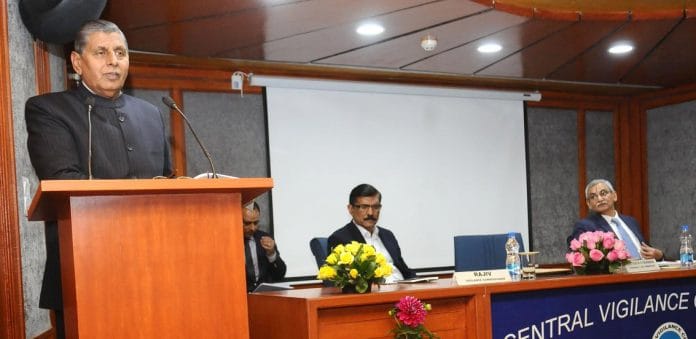Chairman B.S. Chauhan also tells ThePrint using Aadhaar to regulate betting & gambling was a suggestion of some stakeholders who favour legalised betting.
New Delhi: The Law Commission never recommended legalising betting and gambling in India, its chairperson B.S. Chauhan has said, days after it was widely reported that the panel had made this landmark suggestion to tackle the menace linked to cricket.
Using the Aadhaar framework to regulate legalised betting and gambling is also not a recommendation of the Law Commission, ThePrint has found. It is a suggestion of some stakeholders who have advocated legalising betting and gambling which the commission has just summarised and reproduced.
“We have no idea where these reports emerged from…but what is shocking is that not even one media house reported the recommendations correctly,” Chauhan told ThePrint late on Wednesday.
“We have simply not recommended the legalisation,” he said.
The commission’s 276th report, released on 5 July 2018, said the existing “policy of the government (National Sports Development Code of India, 2011, etc.), the current socio-economic atmosphere in the country and the prevalent social and moral values do not encourage betting and gambling”.
“Accordingly, the commission reaches the inescapable conclusion that legalising betting and gambling is not desirable in India in the present scenario,” it read.
“Therefore, the state authorities must ensure enforcement of a complete ban on unlawful betting and gambling,” the report said.
What led to confusion
The confusion is suspected to have been triggered by the way the report was worded — making the stand of the commission unclear.
While the commission recommended a complete ban, it also said that since the inability to enforce such a ban leads to illegal gambling, resulting in a boom in black-money generation and circulation, “regulating them remains the only viable option”.
“The regulation of gambling is only suggested as an alternative, and is not the commission’s primary recommendation,” a member of the commission, who spoke on condition of anonymity, said.
The report itself said, “If Parliament or the state legislature wishes to proceed in this direction, the commission feels that regulated gambling would ensure detection of fraud and money laundering, among others.”
It said that regulation of gambling “would require a three-pronged strategy — reforming the existing gambling (lottery, horse racing) market, regulating illegal gambling and introducing stringent and overarching regulation”.
However, the regulation of gambling was only stated as an “eventuality” if there is failure to enforce a complete ban, and not as a recommendation of the commission, Chauhan said.
Stakeholders’ suggestions
Media reports had also said the commission had suggested an Aadhaar-based framework to regulate legalised gambling and betting in India. However, this is not the commission’s recommendation either.
In one section of the report, the commission has summarised and reproduced responses from stakeholders who support legalisation of betting. The reasons stated by the advocates of betting include collection of tax revenue which can be used for development of India, thereby reducing the tax load on individual citizens.
This has been stated as the commission’s own view in some media reports.
Similarly, while some stakeholders had suggested that Aadhaar may be used to identify service providers of betting, as well as people placing bets, most media reports had said this was the commission’s recommendation.
The Supreme Court had in July 2017 asked the commission to examine the possibility of legalising betting in India.
“After an in-depth study, we came to the conclusion that betting cannot be legalised in the country…the misreporting is only creating an impression that the commission wants to encourage betting in the country,” Chauhan said.






